Choosing the right material for your new windows: a comprehensive guide
Selecting windows for your home involves considering several factors such as aesthetics, energy efficiency, maintenance, and durability. The material you opt for plays a vital role in these aspects. With a range of options available, it’s essential to weigh the pros and cons of each. This guide offers a thorough exploration of different window materials to assist you in making a well-informed choice suited to your needs.
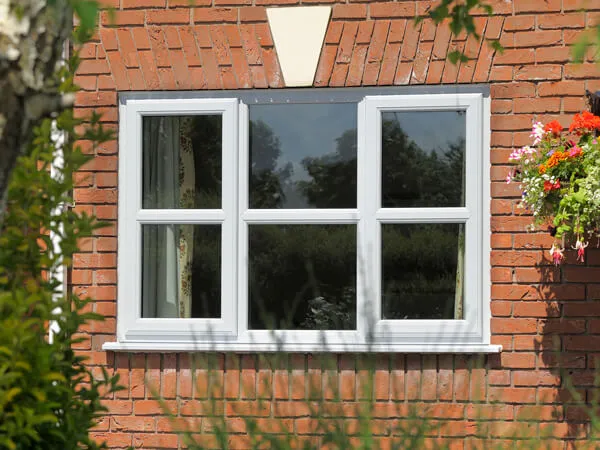
UPVC Windows
UPVC windows, crafted from Poly Vinyl Chloride (UPVC), stand out as a preferred choice for many homeowners. They have gained popularity owing to their affordability, energy efficiency, and minimal maintenance requirements.
Advantages
Cost-Effective: UPVC windows are generally more economical than alternatives, making them a budget-friendly option.
Energy Efficiency: They provide excellent insulation, helping to lower energy costs by maintaining consistent indoor temperatures.
Low Maintenance: UPVC windows do not need painting or staining and resist rotting and corrosion.
Durability: They are robust and can endure various weather conditions without warping or peeling.
Disadvantages
Limited Colour Options: UPVC windows typically offer fewer colour choices, and once manufactured, the colour cannot be altered.
Environmental Impact: UPVC is not biodegradable and can pose environmental concerns during production and disposal.
Aesthetic Constraints: Despite improvements over time, some individuals still consider UPVC windows less visually appealing compared to wood.
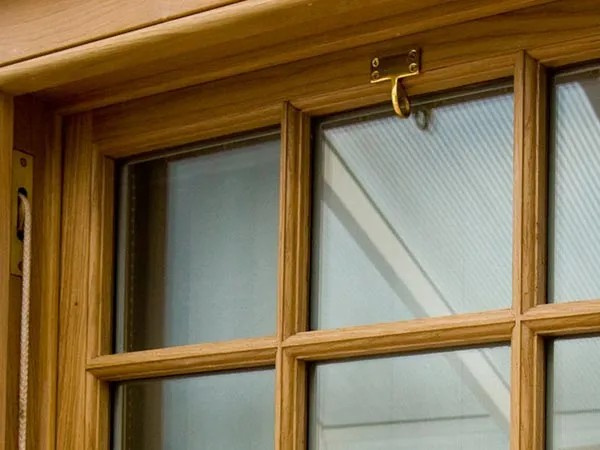
Wood Windows
Wood windows are celebrated for their timeless elegance and exceptional insulation capabilities, making them a favoured option among homeowners. They can be customised through painting or staining to harmonise with both interior and exterior home aesthetics.
Advantages
Aesthetic Appeal: Wood windows add a warm, traditional charm that enhances the beauty of any UK home.
Ability to customise: You can easily customise them with paints and stains to match your home’s décor.
Good insulation: Wood naturally insulates well, helping to improve energy efficiency.
Disadvantages
Maintenance: Wood windows need regular upkeep, such as painting, staining, and sealing, to prevent issues like rot, warping, and other damage caused by insects.
Price: They generally do cost more than UPVC and aluminium windows.
Durability: Without proper maintenance, wood windows can unfortunately degrade over time.
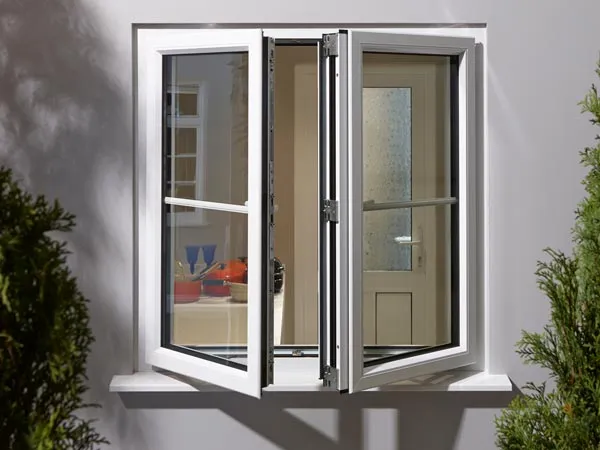
Aluminium Windows
Aluminium windows are often chosen for their slender, contemporary looks and their strong and lightweight features. Due to their strength, aluminium windows can be extremely slim without compromising performance. While often used in commercial buildings, they are also well-suited for residential properties.
Advantages
Strength: Aluminium windows excel in strength, capable of supporting large glass panes, which is ideal for expansive, modern window designs.
Low Maintenance: Requiring minimal upkeep, they boast resistance to rust and corrosion.
Aesthetic Appeal: Aluminium presents a sleek, contemporary appearance that enhances modern home designs.
Disadvantages
Thermal Conductivity: Aluminium’s poor insulation properties allow heat and cold to pass through, potentially increasing energy costs unless equipped with a thermal break.
Condensation: Aluminium windows may be susceptible to condensation, which can contribute to mould and mildew issues.
Cost: High-quality aluminium windows featuring thermal breaks can come with a higher price tag.
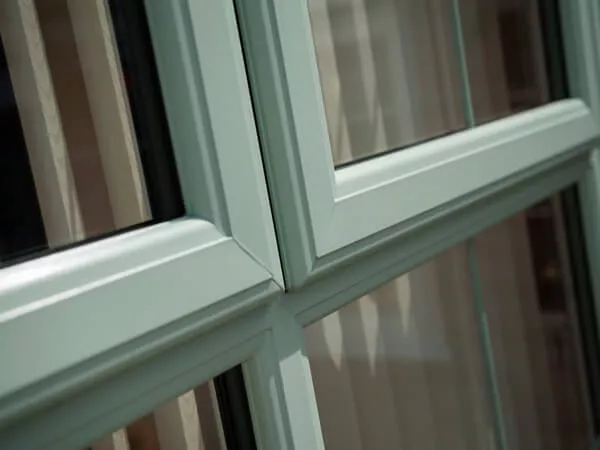
Composite Windows
As the name suggests, composite windows are made from a collection of different materials that usually include wood fibres, UPVC and other manmade materials. This combination of materials is hoped to give the best of both worlds.
Advantages
Durability: Composite windows stand out for their robustness, effectively resisting warping, rotting, and damage from insects.
Energy Efficiency: These windows provide excellent insulation properties akin to those of wood windows.
Low Maintenance: Composite windows demand significantly less upkeep compared to traditional wood alternatives.
Aesthetic Versatility: They can be crafted to replicate the appearance of wood and are available in various paint or stain options.
Disadvantages
Expense: While typically pricier than UPVC windows, composite options generally come in lower than premium wood or fibreglass windows in terms of cost.
Availability: Composite windows may not be as readily found in the market as UPVC or wood alternatives, depending on your location.
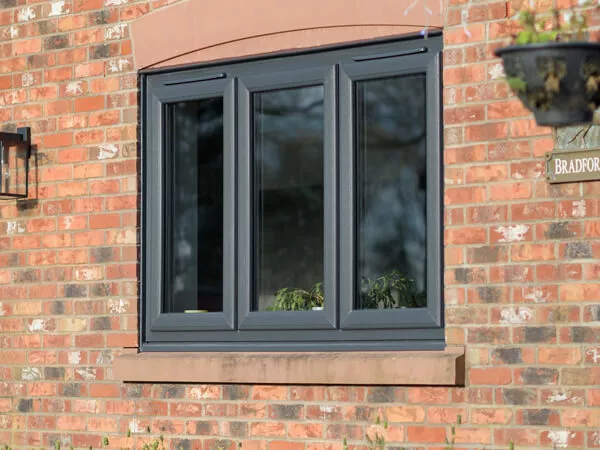
Conclusion
When you’re deciding on the best material for your new windows, it all comes down to what fits your needs, budget, and personal style. UPVC windows are a solid choice if you’re aiming for affordability and minimal upkeep. Wood windows stand out for their elegance and ability to be tailored to your preferences, although they require more maintenance.
Aluminium windows offer a sleek, contemporary look but might require extra insulation for optimal performance. Composite windows combine the strengths of wood and UPVC, providing both durability and aesthetic charm.
Take into account factors like your local weather conditions, the architectural character of your home, and how hands-on you want to be with maintenance before settling on a choice. Seeking advice from a professional window installer can also guide you towards making the smartest decision for your home.
Conservatory Outlet retail customer reviews
Read a small selection of the sentiments from our Premium Retail customers throughout the UK.
Start your journey with a free window quote
Simply fill in your details for your free, no obligation quotation, and click “Get Quote” and your nearest retailer will contact you as soon as possible to start your journey.
